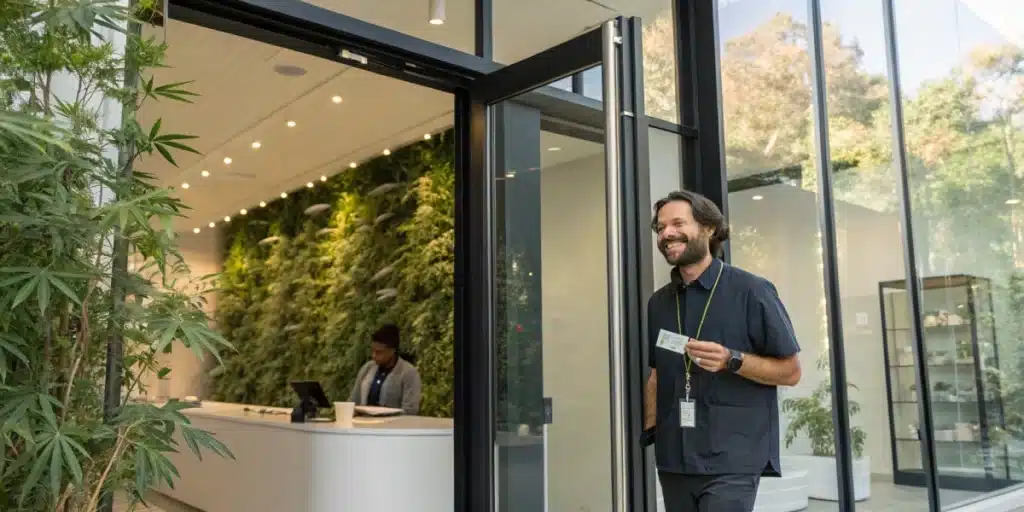
Can I Buy Weed in California: Legal Insights
Legal Status of Cannabis in California
Recreational vs. Medical Use
California has been a pioneer in the legalization of cannabis, and understanding the distinction between recreational and medical use is essential for anyone asking, “Can I buy weed in California?” In 1996, Proposition 215 made California the first state to legalize medical marijuana, allowing patients with qualifying conditions to obtain cannabis with a doctor’s recommendation. This marked a significant shift in public perception and paved the way for the current landscape of legal cannabis.
Fast forward to 2016, and Proposition 64 expanded legal access to include recreational use for adults aged 21 and over. Now, anyone can legally purchase and consume cannabis for personal use, as long as they adhere to the state’s regulations. This dual approach ensures that both medical patients and recreational users can enjoy the benefits of cannabis while maintaining a structured legal framework.
Recommended Strains
Banana Cream
|
|
THC | 28% - 30% (High) |
|
|
Type | Feminized |
|
|
Yield | Medium |
|
|
Phenotype | 70% Indica / 30% Sativa |
Banana Kush Auto
|
|
THC | 17% - 20% (Medium) |
|
|
Type | Autoflowering |
|
|
Yield | High |
|
|
Phenotype | 60% Indica / 40% Sativa |
It’s important to note that while recreational use is legal, medical marijuana patients have certain advantages, such as higher possession limits and access to specific strains that may not be available to recreational users. Understanding these nuances can help you navigate the complex world of California cannabis laws, making it easier to answer the question, “Can I buy weed in California?”
Key Legal Milestones
Several key legal milestones have shaped the cannabis landscape in California. The passage of Proposition 64 in 2016 was undoubtedly one of the most significant events, as it legalized recreational cannabis and established a regulatory framework for its sale and distribution. Following this, the Bureau of Cannabis Control was created to oversee the implementation of the state’s cannabis laws, ensuring compliance and consumer safety.
Another important milestone was the establishment of the Medical Cannabis Regulation and Safety Act (MCRSA) in 2015, which set forth regulations for the cultivation, distribution, and sale of medical marijuana. This act was later integrated into the broader cannabis regulatory framework following the passage of Proposition 64. These legal changes not only allowed for the growth of the cannabis industry but also helped to eliminate the stigma surrounding its use. As California continues to refine its cannabis laws, understanding these key milestones will provide you with a clearer picture of the legal landscape. This knowledge is essential for anyone considering the question, “Can I buy weed in California?”
Promos & Deals
Where to Purchase Cannabis
Licensed Dispensaries
When pondering, “Can I buy weed in California?” your first thought might be about where to actually purchase cannabis. Licensed dispensaries are the go-to places for both medical and recreational users. These establishments are regulated by the state, ensuring that the products they sell meet specific safety and quality standards.
Dispensaries offer a wide variety of products, including dried flower, edibles, tinctures, and concentrates. Each dispensary may have its unique atmosphere and selection, so exploring different locations can be an enjoyable experience. Many dispensaries also have knowledgeable staff who can help guide you through the selection process, making it easier for you to find the right products for your needs.
Visiting a licensed dispensary not only ensures that you are purchasing legal cannabis but also provides an opportunity to learn more about the products available. Many dispensaries host educational events or offer consultations, allowing you to deepen your understanding of cannabis and its various uses.
Online Purchase Options
In addition to physical dispensaries, California offers robust online purchase options for cannabis products. Many licensed dispensaries have embraced e-commerce, allowing customers to browse their inventory and place orders from the comfort of their own homes. This convenience is particularly appealing for those who may not feel comfortable visiting a dispensary in person or for those who want to avoid the crowds.
When purchasing cannabis online, it’s crucial to ensure that you are dealing with a licensed vendor. Reputable online dispensaries will require you to verify your age and identity before completing your purchase. Many also offer delivery services, making it easier than ever to get your cannabis products delivered straight to your door.
Online purchasing has opened up a new realm of possibilities for cannabis consumers, but it’s essential to be cautious. Make sure to read product reviews and verify the legitimacy of the vendor to ensure a safe and satisfying shopping experience.

Purchase Limits and Regulations for Can I Buy Weed in California
Possession Limits
Understanding possession limits is vital when considering, “Can I buy weed in California?” California law establishes specific limits on how much cannabis a person can possess at any given time. For recreational users, the law allows individuals to possess up to one ounce (28.5 grams) of cannabis flower or up to eight grams of concentrated cannabis. Medical patients may have higher possession limits, depending on their doctor’s recommendation.
It’s important to note that these possession limits apply to public spaces. If you are at home, you can legally cultivate up to six plants for personal use, but you must adhere to local regulations concerning home cultivation and storage. Possessing more than the legal limit can lead to fines or other legal repercussions, so always be mindful of the amount you carry with you. While it’s legal to possess cannabis, it’s essential to consume it responsibly and in designated areas. Public consumption is not allowed in California, and driving under the influence of cannabis is also illegal. Understanding these regulations will help you navigate your cannabis experience in California with confidence.
Age and Identification Requirements
California has established clear age and identification requirements for purchasing cannabis, which is crucial for anyone asking, “Can I buy weed in California?” To buy recreational cannabis, you must be at least 21 years old. Medical marijuana patients need to be 18 or older, although minors can obtain cannabis with a doctor’s recommendation and parental consent.
When visiting a dispensary or making an online purchase, you will need to provide valid identification to verify your age. Acceptable forms of ID include a government-issued driver’s license, state ID, or passport. Dispensaries take this requirement seriously, so be prepared to show your identification at the door or during the online checkout process. Ensuring you meet these age and identification requirements is essential for a hassle-free cannabis shopping experience. Always have your ID ready, and don’t hesitate to ask staff members if you have any questions about the purchasing process.
Tips for Safe and Legal Buying
Recognizing Licensed Vendors
As you navigate the cannabis market in California, recognizing licensed vendors is key to ensuring a safe and legal purchasing experience. Licensed dispensaries are required to display their state-issued licenses prominently, both in-store and on their websites. This is your first line of defense in confirming that you’re dealing with a legitimate business.
Before making a purchase, take a moment to verify that the vendor has a valid license through the California Bureau of Cannabis Control. You can check their website for a list of licensed dispensaries and delivery services. This diligence not only protects you as a consumer but also supports the state’s efforts to regulate the cannabis industry responsibly. Checking for licenses, consider reading customer reviews and testimonials. Fellow consumers can provide insights into the quality of products and the overall experience at a dispensary. A reputable vendor will have a solid reputation within the community, which can guide your purchasing decisions.
Realizing Product Labels
When purchasing cannabis, whether in a dispensary or online, understanding product labels is essential. Cannabis products are required to have labels that provide critical information, including THC and CBD levels, strain type, and recommended dosage. This information helps consumers make informed choices about the products they purchase.
Take the time to read labels carefully, especially if you are trying a new product or strain. Different cannabis strains can have varying effects, and knowing the THC content can help you gauge how potent a product might be. If you’re unsure about anything on the label, don’t hesitate to ask a staff member at the dispensary for clarification. Being knowledgeable about product labels will empower you as a consumer and enhance your overall cannabis experience. It can also help you avoid products that do not align with your preferences or needs, making your journey through California’s cannabis market more enjoyable and fulfilling.

FAQs about can i buy weed in california
What are the legal age requirements?
To purchase recreational cannabis in California, individuals must be at least 21 years old. For medical marijuana, patients can be as young as 18, provided they have a doctor’s recommendation. Additionally, these age requirements are strictly enforced by law, and valid identification must be presented at every point of sale to ensure compliance with state regulations and to prevent unauthorized access.
Can tourists purchase cannabis in California?
Yes, tourists can legally purchase cannabis in California as long as they are 21 or older and possess a valid form of identification. Many dispensaries cater specifically to tourists by offering product consultations and guided tours of their facilities. Moreover, local regulations require tourists to follow the same legal standards as residents, ensuring a safe and regulated experience for all visitors.
Are there limits on the amount I can buy?
Yes, recreational users can buy up to one ounce (28.5 grams) of cannabis flower or up to eight grams of concentrated cannabis at a time. Medical patients may have higher limits based on their doctor’s recommendation. In addition, state law imposes strict purchase limits to prevent misuse and diversion, and retailers are required to verify each transaction with proper documentation to ensure that buyers stay within the legal boundaries.




















